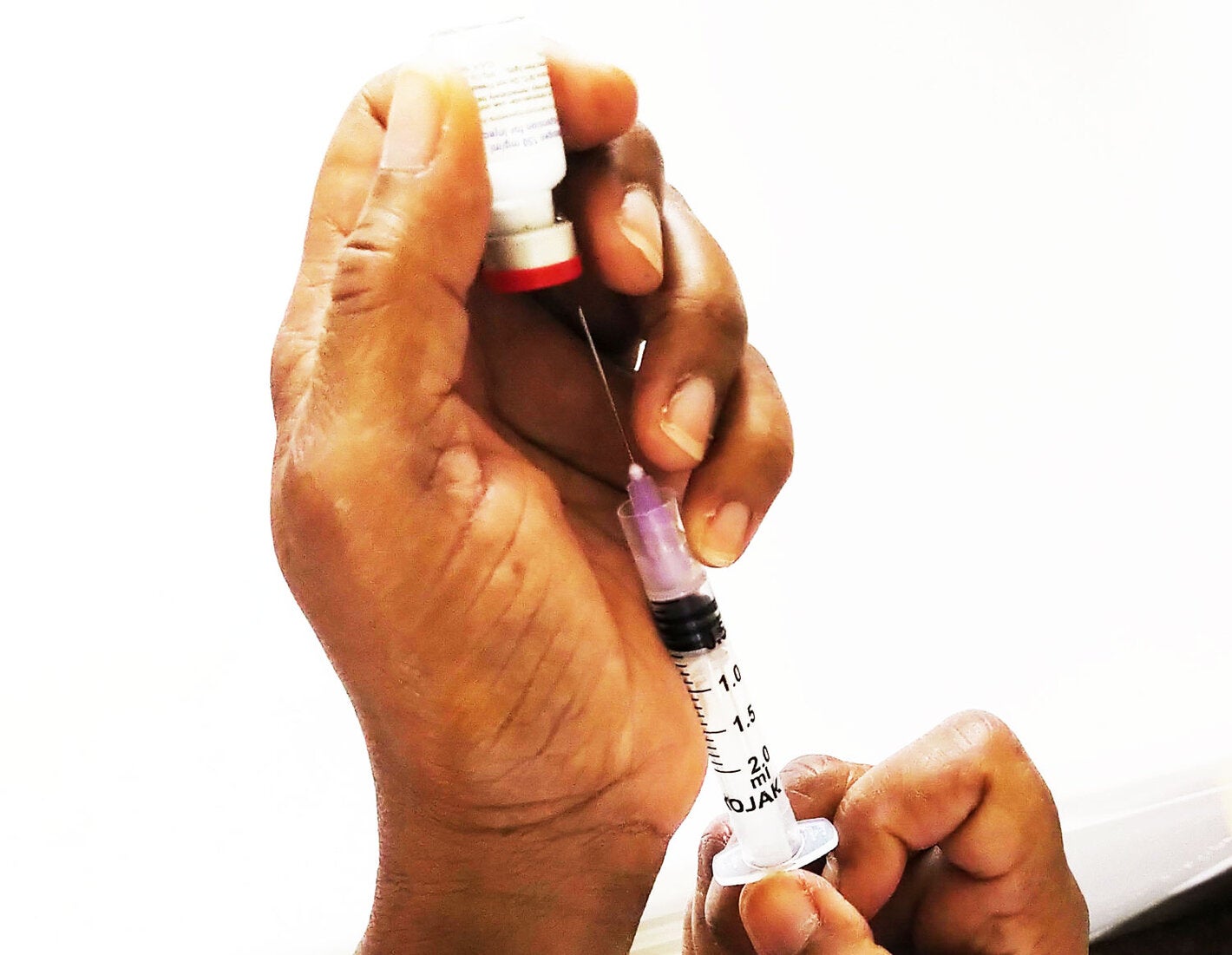
Kingston, Jamaica, March 22, 2024 (PAHO) - In a significant moment for Jamaica's digital health landscape, representatives from the Ministry of Health and Wellness (MOHW), the United States Agency for International Development (USAID), UNICEF, and the Pan American Health Organization / World Health Organization (PAHO/WHO) participated in the Electronic Immunization Registry (EIR) Logic Model Development Workshop, which took place from March 12 to 13, 2024, in Kingston.
This event, led by the USAID-sponsored Data for Implementation (Data.FI) project, signaled the initiation of the development of an EIR in Jamaica, which will improve health services by improving access to vaccination records, facilitating timely and potentially life-saving interventions, and data availability for applied research. The event brought together experts to prioritize key indicators for measuring the success of the EIR and Jamaica's immunization program.
At the heart of the workshop's agenda was the cooperative crafting of a logic framework to support the implementation of the EIR. This required engaging in group activities to define short term outputs, medium term outcomes and long-term goals. Thanks to the support from the Government of Canada's initiative “Improving Equitable Access and Coverage of Covid-19 in Latin America and the Caribbean” (CanGIVE), three PAHO’s technical experts joined the two-day session. Through its CanGIVE program, the Government of Canada committed C$45 million (US$33.4 million) to Jamaica, Haiti, Colombia, and regional support to increase access to COVID-19 and routine vaccination in Latin America and the Caribbean. More specifically, this workshop is one of the many collaborative activities that see PAHO/WHO’s involvement in supporting the implementation of the EIR in Jamaica.
Dr. Tracy Evens-Gilbert, a consultant pediatrician and tropical medicine specialist, emphasized the extensive benefits of an EIR. She noted that, "An EIR will facilitate sharing data with the government, from both the public and the private sector, enabling real-time data entry, thereby identifying missing children and streamlining data management. This innovation not only enhances access but also saves public and private resources in terms of time, travel, and money."
Ms. Pamela Foster, Director for the Office of Environment and Health at USAID Jamaica, reaffirmed USAID's support for Jamaica's EIR. She commended the leadership of the MOHW and appreciated the technical support from PAHO/WHO and UNICEF. Ms. Foster emphasized that an EIR will be a significant digital advancement and underscores the collective commitment to the well-being of all Jamaican citizens.
In her concluding remarks, Dr. Melody Ennis, the EIR project manager at MOHW, praised the workshop's collaborative atmosphere. She thanked regional stakeholders for their invaluable contributions.
One of the goals of PAHO/WHO is for all countries in the region have an EIR and the organization is committed to providing technical and other support to the country’s immunization program and the EIR, from its inception through the present, and into the future.



